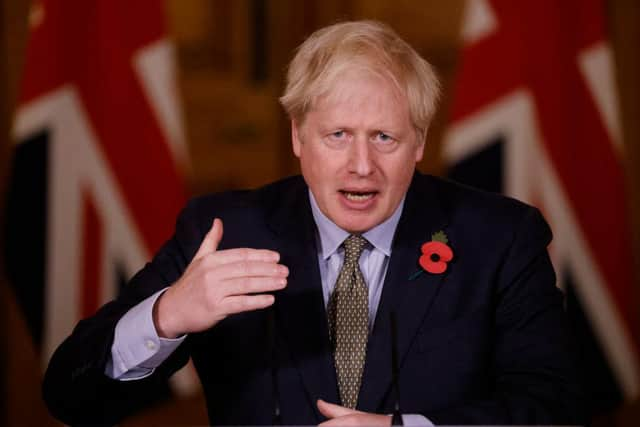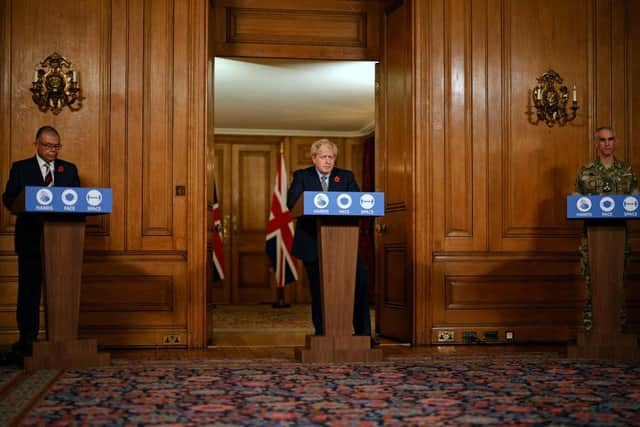First coronavirus vaccinations could begin by Christmas, says senior medic
and live on Freeview channel 276
But speaking alongside Prime Minister Boris Johnson at a Downing Street press conference, deputy chief medical officer Professor Jonathan Van-Tam said it would still be weeks after a first jab before people would develop maximum immunity.
Speaking after encouraging reports on trials of a vaccine being developed by Pfizer, Prof Van-Tam said he was ‘hopeful but not certain’ that we could start to see vaccinations by Christmas.
He likened the announcement to scoring the first goal of a penalty shout-out. It didn’t win the cup, but ‘it tells you that the goalkeeper can be beaten’.


“We know this particular vaccine prevents disease. What we don’t know yet and where you have to be patent and stick with us, is that we don’t know what this means for when we can get life back to normal, when we can start to lift some of the restrictions,” he said.
He did not see a vaccine making any difference to the current wave of infections: “We have seen a swallow but this is very much not the summer.”
It would be ‘a colossal mistake’ to relax at this point.


"We might be able to look towards the end of spring for a much better horizon than we have in front of us now,” he said.
And he compared the vaccine to a train in the distance: “At the moment, it is a couple of miles down the track and we have just seen the lights round the bend.”
Asked about time between vaccination and immunity, he said most vaccines would require two doses, between 21 and 28 days apart.
There would be partial protection after the first dose but the ‘safe space’ was 14 days after the second dose.
Pressed on how confident he was about ending England’s second lockdown on December 2, Mr Johnson said: “I have got a lot of confidence but it depends on all of us doing it together and observing it and not being mentally sidetracked by a surge of optimism about a vaccine.”
He said the sound of the cavalry coming over the hill was closer, but still a long way off.